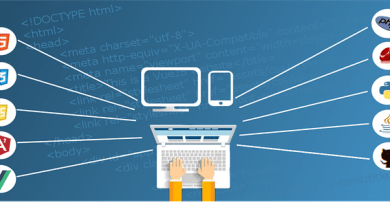Mobile Learning: The Future of Education
Technology is rapidly changing and evolving, affecting all aspects of life, including education. One of the most considerable developments in education is mobile learning or m-learning. Mobile learning is an innovative way of learning involving mobile devices such as smartphones, tablets, and laptops to access educational content and materials.

Mobile learning is rapidly gaining popularity among students, educators, and employers. This is because it offers several advantages over traditional learning methods. For one, it allows learners to learn at their pace and time. Students can access educational materials anytime, anywhere, and from any device. They can study while commuting, waiting in line, or even on vacation.
Another advantage of mobile learning is that it is highly engaging and interactive. It uses multimedia tools and resources, such as videos, animations, and simulations, to make learning more interesting and enjoyable. This helps keep learners motivated and engaged, leading to better learning outcomes.
Mobile learning also offers a personalized learning experience. Learners can customize their learning experience by choosing the content and resources most relevant to their needs and interests. This helps them to learn more efficiently and effectively.
Mobile learning is also cost-effective. It eliminates the need for traditional classroom settings and materials, such as textbooks and printed materials. This reduces the cost of education and makes it accessible to a broader range of learners.
There are several types of mobile learning. One type is mobile apps, which are designed specifically for educational purposes. These apps can be downloaded on smartphones and tablets, providing access to educational resources such as videos, tutorials, quizzes, and other interactive materials.
Another type of mobile learning is mobile web-based learning. This involves accessing educational content and resources through a mobile browser. This type of learning is ideal for learners who prefer to use their mobile devices for learning but do not want to download additional apps.
Mobile learning is not without its challenges. One of the major challenges is ensuring that the content and resources are accessible to all learners, regardless of their device or internet connection. Another challenge is ensuring that the content is high quality and meets the standards of traditional educational materials.
Despite these challenges, mobile learning is quickly becoming the future of education. As technology continues to advance, the opportunity for mobile learning is endless. As a result, mobile learning will play a great role in shaping the future of education.
In conclusion, mobile learning is an innovative and effective way of learning that is gaining popularity among students, educators, and employers. It offers several advantages over traditional learning methods, such as flexibility, engagement, personalization, and cost-effectiveness. While some challenges are associated with mobile learning, it is the future of education. As such, educators and institutions should embrace mobile learning and leverage its potential to improve the quality of education and increase access to learning opportunities for all learners.







